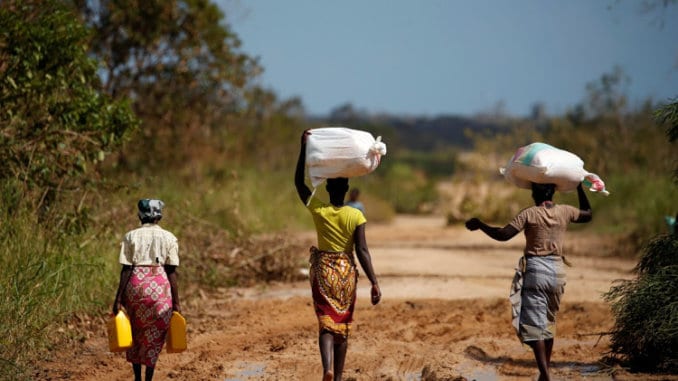The coronavirus pandemic (COVID-19) has brought with it untold suffering world over, active cases have been recorded, recoveries registered, and death tolls reported, however, is that all to write home about?
Awareness campaigns have been rolled out, and preventive measures spelt out, but there are untold sufferings going on in communities. As for Zimbabwe, a lockdown has been effected, and extended by two more weeks.
There is still a possibility for a further extension as the conditions have not improved.
Meanwhile, there has been massive disregarding of some of the lockdown regulations as people struggle to strike a balance between the fear of dying from covid-19 and the looming hunger in their homes.
A survey by this publication in Epworth, this morning has revealed how people are struggling to adjust to these measures.
One resident, Felix Chisoma says the advent of the pandemic has ruined their livelihoods and forced them to live on a single meal a day, as they try cope with available food reserves until they are able to return to their work, after the lockdown.
He adds that, because of the current situation, he could not travel around in search of piece jobs.
Prudence Chibaya, concurs that the residents are facing critical food shortages in homes. “People are suffering in silence. As for me, it is even harder because I am on medication that requires me to have a proper meal, preferably three meals a day,” she says.
She adds that local shops are cashing in on the situation, charging around US$6 for a 10kg bag of mealie meal, instead of less than US$3 or equivalent.
Reports that hunger is forcing Epworth residents to continue breaking the lockdown regulations is cause for concern and fears of outbreaks are becoming so real.
According to Epworth Local Board District Chairperson, Councillor Masunda, the hungry residents are not observing social distancing regulations, as they continue going out in search for food.
“Epworth residents are facing severe food and water challenges prompting them to ignore social distancing regulations prescribed by the lockdown to curb the spread of the COVID-19 pandemic.
“Shops selling basic commodities attract huge queues, while water consumption has increased during the lockdown. Residents are frequently scrambling for the precious liquid at limited water points,” Masunda said.
ZwNews came across a number of residents walking more than 15 to 20m kilometers to nearby, Wedzera Shopping Centre or as far as Queensdale shopping center on foot.
One resident said they have to walk all the way because public transport has been suspended from operating during the course of the lockdown.
The government suspended all public transport in the country, save for the state run Zimbabwe United Passenger Company (ZUPCO).
To board the ZUPCO buses one has to prove that they are either government workers, or any other, exempted from travel restrictions. Travel letters are demanded by the security forces manning roadblocks.
Apparently, a senior employee at a local supermarket at Queensdale shops said people are coming as early as 4:30am in the morning as they anticipate maize meal deliveries.
“The situation is tense, people are coming here as early as 4:30 in the morning, others are even sleeping on the shops’ pavement, so that they could access front positions in the queue in case of a delivery,” said the employee who declined to be named.
Meanwhile, the Informal Economy Traders Association has shared similar sentiments, saying the cushioning disbursements promised by government of ZW$200 is not enough.
“We would like to remind the government that our members are suffering from hunger in their houses and the truth is that there is no food in their homes, our members living with chronic diseases are at greater risk at this moment.
“Vendors and informal traders are aware of the dangers posed by COVID19 and we are willing and ready to honour the directive to stay at home during this difficult time as a nation of Zimbabwe and the entire world at large but hunger is now another big disaster in households.
“We are now receiving cases of domestic violence because families are beginning to have fights due to shortages of food,” said the Association.
There has been calls fr the government to review its promised disbursements upwards.
Under the current strict conditions enforced by the army and police, more than 5,000 people have been arrested for defying the lockdown regulations, and chief among them being the breaking of movement or travel restrictions.
According to the national Police Spokesperson Paul Nyathi, those who were arrested violated a number of lockdown regulations including unsanctioned movements among others.
“The number includes some people who were violating the Liquor Act, operating businesses that are not exempted, illegally transporting members of the public without being cleared, loitering without valid reasons and various crimes under the Miscellaneous Act,” he said.
Heal Zimbabwe Trust, a rights group, has also reported that there has been assaults against some civilians by members of the security forces for not complying with the lockdown regulations.
There has recently been a wave of arrests and abuse of members of the press for travelling around while doing their jobs, though they fall within the exempted bracket.
zwnews













